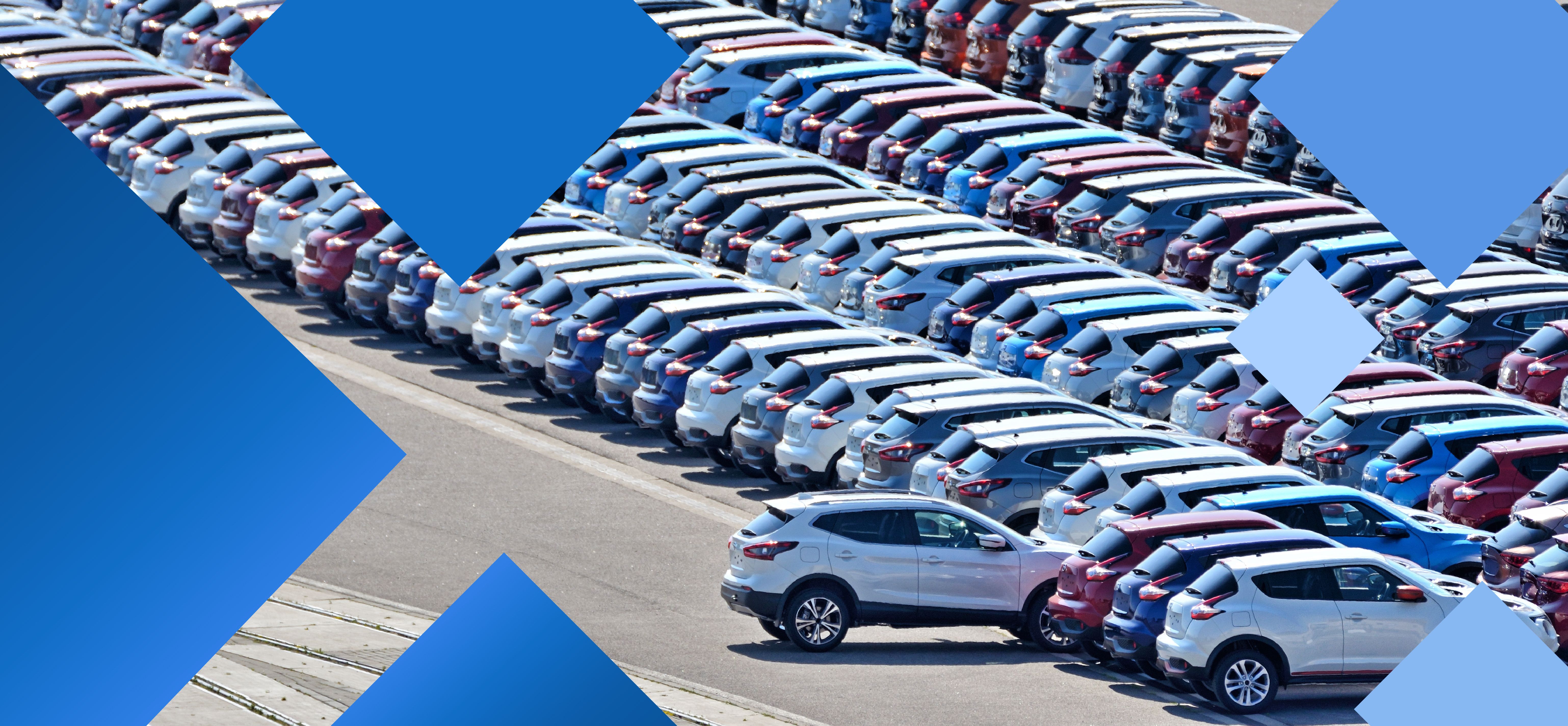Insights
What is The Future of Car Sales, and How Will it Affect Your Automotive Recycling Business?

If you’re an automotive recycler, you’ve probably experienced the consequences of falling car sales firsthand. The COVID-19 pandemic (2020-2022) kickstarted a chain of events that increased inflation, interest rates for auto loans, and new vehicle prices.
These unique economic factors caused a steep decline in car sales, creating a shortage of scrap cars available for recycling. But now that we’re out of the pandemic, are we finally out of the woods for all new vehicle sales? And what about the looming promise of EVs and hybrids; how will that affect your automotive recycling business?
Stay tuned as we uncover the future of car sales, the rise of EVs and hybrids, and the evolving landscape of your business.
What Affects the Rate of New Vehicle Sales?
Understanding the dynamic market of vehicle sales starts by knowing the economic factors that affect the automotive industry, like inflation and interest rates.
COVID-19 created a flood of economic conflicts. Inflation rose to a historic benchmark, causing interest rates to skyrocket to counteract it. Semi-conductor chip shortages created a bottleneck in the supply chain, depressing available inventory and cause new vehicle prices to rise. This slammed the brakes on all new vehicle sales.
But things are changing slowly. Some analysts anticipate that interest rates will remain steady and even decline in late 2024 to early 2025, which will give consumers the incentive to take out a car loan and purchase.
Supply chain issues, such as the semi-conductor chips, have resolved, improving inventory. That means less competition for available cars and lower prices, allowing consumers to buy more confidently.
Incentives and discounts are returning to dealerships, slowly cutting the brakes off this steep decline in sales. So, the question remains: will evolving economic conditions allow all new vehicle sales to rise?
Will the Sales of Gasoline-Powered Cars Rise in 2024-2025?
The answer is yes, gas-powered car sales will increase in 2024 and 2025. Experts anticipate a rise of 1-4% (15.6 – 16.1 million units) in the U.S.A. Globally, sales will rise by 2.8%.
This might seem like a small increase, but according to Michael Wayland at CNBC, “Even a small increase in U.S. sales could be good for consumers and the economy. It would mean more vehicles are being produced, potentially easing recent affordability concerns amid inflation, high interest rates and record high new vehicle prices.”
With rising sales of gas-powered cars, what does this mean for the future of your automotive recycling business?
Rising Sales for New Gas Cars Means More Scrap Cars on the Market
Increasing sales for gas-powered cars means consumers are letting go of their older model cars. And that means more scrap cars available for you to buy, recycle, and profit from.
In fact, the car scrappage rate is expected to increase between 60-70 million annually by 2030, which is an increase of 40-50 million over the past decade. That means your opportunities with end-of-life vehicles are far from over.
Also, you’ll remain a key player in growing the car recycling market across the world in the coming years. As countries tighten their environmental standards and green technologies are adopted, vehicle recycling will occupy a major part in returning crucial materials to our economy.
But what about the impact of EVs and hybrid vehicles on your business? How will the rise in electric cars influence your operations once they enter the recycling stream?
EV & Hybrid Sales: Do They Matter to Your Business?
Hybrids are slowly taking over as more auto buyers turn away from electric vehicles (EVs) because of affordability and range problems. The global hybrid vehicle market is expected to grow at a CAGR of 12.83% from 2024 to 2029, reaching $478.33 billion by the end of this decade.
EV sales, on the other hand, are expected to reach around 29.5% of all new vehicle sales by 2030, reaching a market size of $391.03 billion by then—which is lower than the anticipated market size for hybrids.
You might be thinking that electrified transport has nothing to do with your automotive recycling business, especially if you have a converter department. But a rise in any type of vehicle sales, even EVs and hybrids, means consumers are scrapping their old cars and giving you the opportunity to buy more scrap cars for your business.
Looking Ahead: Adapting Your Automotive Recycling Business to Scrap EVs and Hybrids
It will take a few decades for EVs and hybrids to become the vast majority of recycled cars, but it doesn’t mean you shouldn’t prepare for that now. Or at least anticipate it!
The good news is that hybrid cars have catalytic converters. Hybrids rely on both an electric motor and a gasoline engine, which means they emit toxic gases and need to rely on the PGMs inside converters to reduce harmful emissions.
Catalytic converters in hybrids also have higher precious metal content. That’s because hybrids are held to stricter emission standards compared to gas cars, so they need more platinum, palladium, and rhodium to achieve the emission goals. They also get less corroded as the vehicle relies on battery power more often than its gas engine, which means more PGMs are left in the converter once it’s scrapped.
Electric vehicles, though, don’t have a catalytic converter. That’s because they don’t emit any harmful emissions, so they don’t need one.
So, as hybrids and EVs capture more market share and end up getting scrapped, how can you adapt your business to these all-electric or partially electric cars, with and without converters?
Challenges of Recycling EVs and Hybrids
EVs and hybrids have higher electrical and electronic component composition. This includes components like high-voltage batteries, electric motors, power electronics, and harness wires. That means you’ll have to develop new dismantling and processing techniques to handle these materials and find ways to make a profit with them.
Investing in new equipment, training, and expertise to safely dismantle, sort, and process these complex components is essential. For example, properly recycling high-voltage lithium-ion batteries is crucial to recover the valuable materials found inside them. So as more EVs get recycled, train your employees and invest in the right tools to dismantle them correctly and sell them for a profit.
What About Converters?
The end of Internal Combustion Engine (ICE) cars is not imminent. Even as EVs and hybrids make headlines and become available for purchase, ICE vehicles will remain on the road for decades.
Experts anticipate that the 2035 goal of an all-electric vehicle fleet is a mission likely to fail. Even so, if the last gas car is sold in 2034, for example, there will still be millions of gasoline-powered vehicles being used—and entering the recycling stream decades later.
The truth is car buyers still want gas engines, and with too many factors involved in the automotive industry, there’s simply no data showing that gas cars will vanish out of thin air. All roads lead to you still recycling scrap cars and catalytic converters for decades to come.
For more information, visit PMR’s Resource Center.

